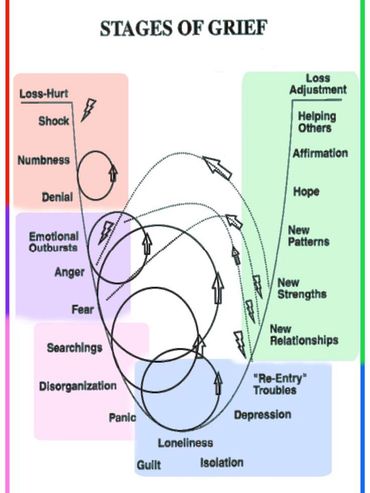Signed in as:
filler@godaddy.com
Signed in as:
filler@godaddy.com

Abuse takes many forms, each with distinct characteristics but often overlapping in their impact. Below are the primary types of abuse, with explanations to help you identify them:
Emotional abuse targets your feelings, aiming to diminish your self-esteem and emotional well-being. It can be subtle, making you question your emotions or feel ashamed for expressing them. Over time, it can leave you feeling unworthy, anxious, or dependent on the abuser’s approval.
Psychological abuse manipulates your thoughts, perceptions, and sense of reality. It often involves tactics like gaslighting, where the abuser makes you doubt your memory or judgment, leaving you confused or feeling like you’re “losing yourself.”
Physical abuse involves any intentional use of force that causes harm, fear, or injury. It’s not limited to severe violence; even “minor” actions can be abusive if they create fear or control.
Sexual abuse involves any non-consensual sexual act or behavior, including coercion or manipulation into sexual activity. It can occur in any relationship, not just romantic ones, and includes actions that violate personal boundaries.
Financial abuse involves controlling or restricting access to money or resources to create dependency or limit freedom. It’s often used to trap someone in a relationship or situation.
Spiritual abuse uses religious or spiritual beliefs to control, manipulate, or shame someone. It can occur in religious communities, families, or relationships where faith is weaponized.
Digital abuse involves using technology to harass, monitor, or control someone. It’s increasingly common in the digital age and can overlap with other forms of abuse.
Verbal abuse uses words to demean, intimidate, or control. It often overlaps with emotional or psychological abuse but focuses on spoken or written language.
Neglect is the failure to provide necessary care, support, or resources, often in relationships where one person has a duty to care for another (e.g., parent-child or caregiver-dependent).
If you recognize these patterns in your life, know that abuse is never your fault.
Healing is possible, and support is available.
If you need recommendations on where to start, consider joining the book club, support group, or requesting a mentoring or soul care session.
Doe Zantamata
Call 1-800-799-7233 (SAFE)
Text "START" to 88788, or chat online 24/7 for confidential advice.
They can guide you or connect you to local programs.
Department of Human Services
Reporting, Support to Navigate options, State Benefits, Child Support
Resource Center
STI Testing, Pregnancy Testing and Resources, Parenting Classes
Weld Food Bank
Options for Food Insecure Households
A Woman's Place
Domestic Violence shelter and 24-hour helpline
Genesis Project of Northern Colorado
Housing for Single Mothers
House of Neighborly Services
Help with basic needs such as food and clothing.
Legal Aid Colorado
United Way Dial 211 Colorado
Domestic Shelters

Amazon Associates Disclosure
Arise! is a participant in the Amazon Services LLC Associates Program, an affiliate advertising program designed to provide a means for nonprofits to raise funds by linking to Amazon.com and affiliated sites. When you purchase through these links, Arise may earn a small commission—at no extra cost to you. These funds help support our mission and programs.
Thank you for choosing to support Arise! in this way!